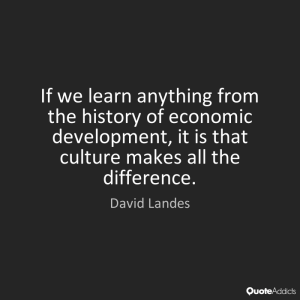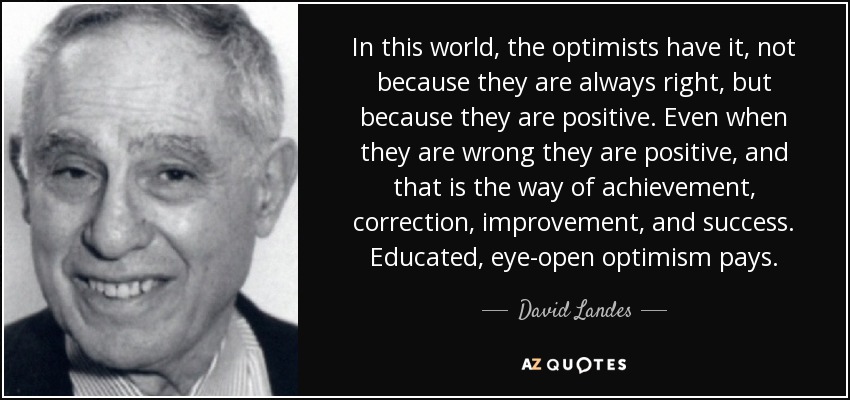
I often complain about the lack of Arab self-criticism which I associate closely with honor-shame cultures and the importance of “saving face,” and eagerly seek out evidence that I’m wrong.
Recently, a remarkable piece appeared at an Arab democratic site, Fikra, by Jordanian journalist Hiam Nawas entitled, “Holding Arab Culture Accountable.” It’s certainly hits a whole range of issues on the head, but being only an opinion essay, it is necessarily short on both substance and implications. I reproduce it here below with comments.
I hope Hiam will respond.
Fikra Forum July 8, 2016 (Also available in العربي)Editor’s Note: This is the first article in a two-part series. Next week, Prof. Mohammad Dajani presents the view that the region’s challenges are primarily political rather than cultural.James Clapper, Director of National Intelligence, recently claimed that the United States “can’t fix” the Middle East region. Clapper is right on the money. The region’s fundamental problems are not political but rather cultural, therefore the United States and its military might is unable to fix them.Culture matters because it is the foundation for the behavior and organization of any society.
One of David Landes‘ favorite expressions: “culture counts.”
Unfortunately for everyone but the PoMoPoCos and the Jihadis, that fell afoul of politically correct.
Overall, however, by his standard, what Nawas describes below, is not so much a cultural issue as an attitudinal one. Honor-shame analysis helps understand how such an attitude prevails right now over a culture, to understand how alpha males – the strong horses, exploit Arab and Muslim loyalties to trap the other members of their tribe into supporting their remarkably belligerent and dysfunctional attitude.
The current chaos in the Middle East has many roots, but some of the conflict’s deepest draw on an Arab culture and identity that lacks internal and external empathy, favors authoritarianism over autonomy, and opts for zero-sum solutions. Unless Arabs take a self-critical look at their values, violence in the Middle East will continue.
Note how much this looks like the kind of writing that Edward Said banished with contempt from the legitimate discussion: the honor-shame reading of Arab culture.
The remark about empathy is important. Modern notions of fairness – To Kill a Mockingbird – are based on empathy, as is demotic monotheistic religiosity. Some think it is the key to a peaceful planet. It takes empathy to forgive someone… and to ask for forgiveness. It’s impossible to move on, if the present and future are prisoners of past exchanges, lost zero-sum gambles that must somehow be avenged.
Lacking in external and internal empathy paints a frightening picture – even internal. No empathy for one’s own tribe? Even as one hates the other side? Shattered tribalism?
In establishing the tenants [sic] of a culture or set of cultures, it is vital to examine the culture’s sense of morality to determine the society’s behavioral ideals. The Arab moral code values revenge over compromise, men over women, and groups over individuals.
“Revenge over compromise” pretty well sums up Arab behavior towards Israel since its independence.
Collective Arab identity is based on tribalism, submitting to paternalistic authority, a sense of honor linked to women’s virginity [and purity], and an ossified sanctification of custom and tradition. There is a glorification of the past along with a refusal to take responsibility for the present and the hope that the future will miraculously be better.
Submission to authority, dreams of unattainable honor, compensation through victimizing the weaker, rigid imposition of a hierarchical past in a manner that subverts any sincere claims to fight for freedom… then what does “From the River to the Sea, Palestine will be Free” mean when shouted by spokesmen for this kind of anti-freedom (of others) “collective Arab identity”?
This is not to say that individual Arabs are a carbon copy of their culture. On the contrary, interaction with average members of Arab societies demonstrates a generally decent, generous, and tolerant demeanor.
Therein lies the Arab world’s great hope to join the 21st century (or as some might say hopefully, the first global millennium), with something to offer, and not just everything to take.
Nor is Arab culture without many positives.
One can well imagine and hope. But right now, at least from the outside, it seems like such culturally self-critical voices have been silenced through appeals to, and enforcement of tribal loyalty.
Arabs – no one, for that matter – likes having to air dirty laundry.
Nevertheless, these positives have not developed into a progressive sociopolitical belief system. The collective culture does not necessarily celebrate political freedom , personal autonomy, or respect for women.
One presumes here, that “does not necessarily celebrate,” is euphemistic. If I read correctly, the “collective culture” she identifies here refers to the male elites that operate Arab political culture by enforcing tribal, honor-shame codes (including aggressive use of honor-killings), and that others, including most women, for cultural reasons of tribal solidarity, collaborate in enforcing that code. That strong-horse, zero-sum, honor-shame driven, “collective culture” regularly fights freedom, if necessarily, with violence.
A look at Palestinian treatment of their own journalists for the mildest criticism, and the impotence of the Western press to protect their Arab colleagues, makes it clear how much power a Palestinian political culture that violently opposes freedom exerts on the situation. To control many Western journalists, all you have to do is threaten their fixers….
The contemporary Arab world also often lacks self-reflection and self-directed criticism. Conversations with Moroccans, Egyptians, Tunisians, Jordanians, and Gulf Arabs repeatedly demonstrate an overall narrative of victimization and blaming the other.
Self-criticism. The key to modernity, productivity, progressive values. Denial… saving face… accusing others… all constitute immature, even cruel ways of dealing with others. Hence the massive dysfunctionality of the Arab world, the inability to reform, the lack of alternatives to the kind of all-consuming hatred that now engulfs the heart of the Levant. Such pervasive, fantastic, and ultimately, paralytic, blaming of others, reflects deep insecurity, responding to challenge with urgent hostility. No questions asked.
Someone who grew up Muslim once confided to me in amazement, “You can ask Jews anything. In the Islam I grew up in, ask questions and you’re in trouble.”
This most notably manifests in a plethora of conspiracy theories, such as the suspicion that ISIS is an American-Israeli invention manufactured to destroy the region, or that the Arab Spring was a Western plot to hand the region over to Islamists.
The evidence for this kind of thinking in some “victim” communities is widespread, in both among Arabs and among American blacks. Most conspiracy theories rob one of agency – the forces are too great and widespread to resist. Apocalyptic conspiracy theories, on the other hand, can provoke delirious, violent paranoia: we must destroy the enemy before it’s too late.
This type of thought process reveals a deep-seated aversion to accountability and responsibility…
Two reasons not to want to admit guilt: a) loss of face, and b) responsibility to change behavior. Both extremely unpleasant. Anyone who can, avoids admitting fault publicly and being held to a higher standard. It’s a question of how far will you go to avoid it: lie? hurt? kill? The duelist has the right to kill for honor.
…that makes gestures such as the condemnation of terrorism against Christians, Yazidis, Jews, or Shia individuals perfunctory.
I take this as one aspect of Nawas’ comments on failure of empathy. Essentially the current Arab line is, “It’s your fault, I hate you. You deserve whatever the Jihadis do to you (not me, of course!), and if I have to condemn terrorism to keep my place at the table (save face), I will, but don’t expect me to mean it.”
Meanwhile the outside world—Iran, Israel, the United States, colonialism, or other Arabs’ failure to live up to “true Islam”—has become the bogeyman of any internal societal failures. This trend has lead to the ultimate irony: Arab troubles are constantly blamed on external forces, which are then expected to solve them.
The peculiar paradox of post-modern conspiracy theories: the victims (us) are helpless before the conspirators (evil you), therefore you, whom I insist on blaming for my woes and accusing of conspiracy, must take care of me. PoMo-PoCo welcomes that victim narrative and blames the colonial past and its current (western, white, privileged, Jewish) representatives. Not surprisingly, this perverse combination of pre-modern and post-modern thinking, maps nicely on Intersectionality: blame the privileged, deny culture.
This observation is not to exempt Western powers. The West’s continuous support of Arab dictators has certainly contributed to the perpetuation of antiquated priorities and democratic deficits.
To be fair to them, the strong men were all they had to deal with, the only effective poliitical players. Indeed, it took centuries for the West to resist its own bullies. For the West to intervene diplomatically in Arab “strong horse” political culture in the later 20th century, would have taken exceptional intellectual and emotional sophistication; it probably would have failed; and certainly would have been denounced by Edward Said and his epigones, as “orientalist fantasy,” as then used by Jihadis to promote their “blame the West” narrative.
Nevertheless, continuously relying on emphasizing the West’s regional failures to avoid self-examination and reform is intellectually dishonest. Tribalism and disrespect for individual autonomy cannot be characterized and excused as a byproduct of colonialism and Western interventions.
Nawas here adopts a western discourse of “individual autonomy” (one of the key elements in building modern societies), and says to her fellow Arabs, “no, you can’t blame the modern world for your failure to produce a modern – tolerant, self-critical, accountable, empathic, functional, effective – political culture.”
By all measures, Arab countries have a statistically weak showing when compared to the rest of the world, factually documented in various UNDP Arab development reports. For example, a 2002 report highlighted a shortage in the Arab world of three traits recognized as essential by the international community: freedom, knowledge, and female empowerment. One can and should blame Arab governments and regimes for these deficits; but this only addresses half of the issue.
In 2002, the first report was a bombshell: it was devastating, it was researched and written by Arabs. Worse, it violated the PC narrative. It confirmed precisely what those “Orientalist” right wingers had been saying all along. Even the most lethal of the own-goal journalists of the day, Robert Fisk, rejoiced at the honest critique of the culture he’d been apologizing for in the most debased manner.
Individual liberty is not a cornerstone of Arab culture, learning is emphasized as a process of transmission rather than questioning, and women are often not seen as full citizens, regardless of their legal status.
(…lest women ask the wrong questions.)
These are all verités de la Palice, why in 2016 is this anything but widely accepted consensus? Except that Said banned saying these things, and for the long generation since then (1980-20??), “middle east” information professionals, have been promising democracy around the corner.
An anecdotal example: when an educated Arab acquaintance’s wife tried scheduling an appointment for a cesarean section, the hospital sought his approval.
Clearly Nawas has become used to a high standard of autonomy in DC.
According to the 2015 Global Gender Gap Report, statistical evidence suggests that of the fifteen countries with the lowest rates of women’s participation in the labor force, thirteen are in the Middle East. The report further details that only 18% of working-age Arab women have jobs, and that in 2015 the unemployment rate among young women in Arab states was almost 44 percent, compared to 22.9 percent of male youth.
So the real question is, why is this not the most urgent issue on the feminist’s agenda? Why do Western feminists get ferociously critical of white men and, especially, autonomous Jewish men, and yet show exceptional deference to Arab and Muslim patriarchal behavior?
One can argue about the role that different strains of Islam have played in forming such values, or Islam’s attempt to root out tribalism and ethnocentrism to no avail.
I would see this in terms of the conflict between demotic and hierarchical or triumphalist religiosities. Demotic religiosity is a direct critique of honor-shame normativities, like killing one’s women for the sake of family honor. Demotic Islam sought to resist the tribal (inner Jihad, submitting to Allah); triumphalist Islam reorganized religious honor on a global scale (Islam must dominate; global califate).
My sense/hope is that there are extensive demotic strains within Islam, but that they have yet to be formally and sincerely adopted with kufar. Nawas’ comment on lack of empathy within and without suggests weak demotic strains in the current situation.
Whatever the case maybe, the combination of tribalism and religion has been deadly, the chaos in the region being a case in point.
Not only because it shows how strong some of the most vicious, authoritarian strains in human behavior are within Arab-Muslim political culture – the melt-down of the state, the imposition of ruthless chiliastic sovereignties, the reversion to constant warfare – but also because there’s no serious civil-society alternative, not one current experiment in the Arab world in which real modern political culture that actually does respect human rights, is currently underway.
For the time being, Arab obsession with Israel has expanded into an obsession with Iran, coupled with a rampant moral amnesia regarding the Syrian refugees’ catastrophe. There is no lack of financial resources in the Middle East, yet certain Arab states spend billions of dollars on weapons while unwilling to allow Syrian refugees in their countries, placing even greater burdens on the refugees themselves and the countries already hosting millions. Arabs are cheering the Saudi led coalition in Yemen, but make no effort to rebuild the country or settle the displaced Yemenis.
It’s somewhat like shooting fish in a barrel to go after Arab hypocrisy, which is the nasty compliment Arabs pay to the West.
Today, Arab media, politicians, and the common people are busy condemning Iran and Shiites for the destruction in the region. Iran’s pernicious behavior is counterproductive; yet pretending Iran’s intervention in “Arab affairs” is the source of all ills in the region is a fallacy. Informed observers would argue the political turmoil has been in the making for decades, driven by a brutal combination of authoritarian leadership, limited social progress, and a dismal economic record.
…and use of hatred of Israel as a drug of choice.
The obsession with destroying Israel is a root cause of this brutal combination that Nawas sees brewing for some time now, what Irshad Manji calls a “weapon of mass distraction.” Presumably, any progressive Arab nation would, having overcome the honor-shame need to revenge lost honor, develop positive relations with Israel.
But… Arabs give up the grievance against Israel? Impossible. Unthinkable. Only revenge brings honor. Sooner not develop than give up that vendetta!
It is now time for Arab intellectuals to seriously examine the political, social, and economic circumstances that led to this state of affairs, in order to begin advocating for a real path forward.
Can Arab intellectuals seriously entertain the possibility that they’ve been misinformed by their authoritarian teachers about the Jews?
Can they contemplate the possibility that the Jews are not in Israel to destroy them (a malevolent conspiracy theory largely the product of projection)?
Can they understand that, on the contrary, Jews would take that as a massive moral failure?
That, contrary to what they think, the Jews believe they fulfill their chosen destiny when the families of the world are blessed.
The hard moral truth, the hard self-criticism, for Arabs is to realize that Jews actually are (far) more forgiving than they. Jews are raised to be masters of compromise over revenge (not always easy). In the Arab culture you denounce, Nawas, all that is taken as signs of weakness, triggers of contempt.
Not so. For Jews, Jihad means, “who is a strong man? he who controls his own desires.” We are your friends on the path to freer and fairer society. No wonder the Jihadis hate us so. No wonder they tell you lies about us.
Why do you believe them?
Hiam Nawas is a Jordanian-American analyst based in Washington DC. This article was originally published on the Fikra website.



Leave a Reply